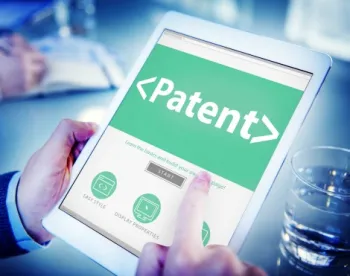On February 14, 2018, a Federal Circuit panel in Aatrix Software, Inc. v. Green Shades Software, Inc., No. 2017-1452, overturned a Middle District of Florida decision that held patent claims to systems and methods for importing data into viewable form on a computer to be patent-ineligible under 35 U.S.C. § 101. According to the majority opinion authored by Judge Moore, the lower court erroneously granted dismissal of the case “in the face of factual allegations” concerning the non-routine and unconventional character of the claimed elements “that, if accepted as true,” would preclude dismissal. In dissent, Judge Reyna criticized the majority for “attempt[ing] to shift the character of the § 101 inquiry from a legal question to a predominately factual inquiry.”
Indeed, the Aatrix majority opinion represents a significant departure from what the Federal Circuit has repeatedly recognized as the “possible and proper” practice of resolving patent eligibility challenges on the pleadings, a practice that legions of district court decisions have observed over the three years since the Supreme Court’s seminal decision in Alice Corp. Pty. Ltd. v. CLS Bank Int’l, 134 S. Ct. 2347 (2014). Under Alice and its progeny, claims directed to an abstract idea can still be patent-eligible if they contain unconventional or non-routine (“inventive”) elements that individually or in combination limit the application of the idea. Numerous Federal Circuit panels have affirmed district court ineligibility decisions that were based on the court’s own reading of the elements a patent owner alleged were inventive in light of the patent’s intrinsic record (i.e., the claims, specification, and prosecution history).
In Aatrix, however, the majority concludes that “[w]hether the claim elements or the claimed combination are well-understood, routine, (sic) conventional is a question of a fact” and that the patent owner’s allegation that the claim element specifying a “data file containing data from a user application for populating the viewable form” is not conventional or routine, if accepted as true, defeats the motion to dismiss. As Judge Reyna points out, the majority’s reasoning could essentially defeat any motion to dismiss, since the allegedly disputed facts need not even be consistent with the intrinsic record.
Aatrix represents the second time in two weeks that a Judge Moore-led panel has overturned a district court finding of patent ineligibility on the ground that the routine or conventional nature of a claim element was disputed. In Berkheimer v. HP Inc., 2017-1437 (Feb. 8, 2018), the Federal Circuit overturned a summary judgment grant of patent ineligibility based on a material dispute of fact over whether the claims contained unconventional elements. Whether these cases signal a permanent break in the so-called “Alice storm,” however, remains to be seen. The Aatrix opinion’s attempt to distinguish prior precedent finding claims ineligible at the pleading stage as involving circumstances in which the question of what was known or routine was uncontested is not likely to convince litigants (let alone the Court members who authored those opinions) and will almost certainly be challenged in future cases.
Nevertheless, for now at least, the new framework signaled by Judge Moore’s opinions will permit patent owners to stave off eligibility rulings at the pleading stage by well-pled allegations in the complaint. On the other hand, the failure to preemptively plead facts that support patent eligibility may still be a problem for patent owners. This view appears to be confirmed by another Judge Moore-led panel decision issued on February 16, 2018 (Automated Tracking Solutions, LLC v. The Coca-Cola Co.), No. 2017-1494, in which the panel affirmed an ineligibility finding made by the Northern District of Georgia under Rule 12(c) because the complaint failed to allege that “any of the hardware components in the representative claims —either alone or in combination as a system—are anything but well understood, routine, and conventional.”





 />i
/>i

